Steer Clear of These 10 Common Recruitment Mistakes: A Guide to Attracting and Retaining Top Talent
Recruiting the right talent is a critical aspect of any organization's success. A skilled and motivated workforce can drive growth, innovation, and productivity. However, the process of hiring the right candidates can be complex and challenging. Even seasoned recruiters may sometimes fall into common pitfalls that can hamper the hiring process and lead to undesirable outcomes. In this article, we'll explore ten common recruitment mistakes and offer insights on how to avoid them, ensuring you attract and retain top-tier talent.
- Unclear Job Descriptions: One of the most fundamental mistakes in recruitment is posting vague or unclear job descriptions. Candidates need a clear understanding of the role's responsibilities, required skills, and expectations. Avoid using jargon or internally used terms that may not be easily understood by potential applicants. Instead, create comprehensive job descriptions that outline the core duties and qualifications explicitly.
- Ignoring Employer Branding: A strong employer brand can be a significant advantage in attracting top talent. Neglecting your company's image can lead to a lack of interest from potential candidates. Invest time and resources in building a positive reputation through social media, employee testimonials, and a well-designed careers page on your website.
- Overlooking Cultural Fit: Hiring candidates based solely on their technical skills while ignoring cultural fit is a grave error. Employees who don't align with your company's values and work environment may struggle to integrate into the team, leading to dissatisfaction and high turnover rates. Incorporate behavioral assessments and cultural fit interviews to ensure a harmonious match between candidates and your company culture.
- Relying Solely on Interviews: Interviews are an essential part of the recruitment process, but relying solely on them can be misleading. Candidates may excel in interviews but struggle to perform in real work scenarios. Incorporate practical tests, case studies, or trial periods to assess candidates' actual skills and abilities.
- Ignoring Employee Referrals: Employee referrals are a valuable source of potential candidates. By overlooking this resource, you may be missing out on highly qualified and culturally aligned individuals. Implement an employee referral program to encourage your current employees to recommend suitable candidates.
- Failing to Nurture Relationships: Building relationships with candidates should be an ongoing process, even when there are no immediate job openings. Keep potential candidates engaged through regular communication and updates about your organization. This way, when a position does open up, you'll have a pool of interested and well-informed candidates to choose from.
- Neglecting Diversity and Inclusion: Diverse and inclusive workplaces are not only more innovative but also more appealing to a broader range of candidates. Failing to prioritize diversity and inclusion in your recruitment efforts can lead to a lack of varied perspectives and talent. Implement strategies to attract diverse candidates, such as using inclusive language in job postings and partnering with diverse organizations.
- Dragging Out the Hiring Process: A prolonged hiring process can be frustrating for both candidates and your organization. Top candidates are often snapped up quickly by competitors, and a slow hiring process may deter them from considering your company. Streamline your recruitment process while maintaining thorough evaluations to secure the best talent swiftly.
- Neglecting Candidate Experience: A positive candidate experience can leave a lasting impression, regardless of the final hiring decision. Keep candidates informed about their application status, provide timely feedback, and offer a transparent view of your organization's culture. A respectful and supportive candidate experience can lead to positive word-of-mouth and a stronger employer brand.
- Not Checking References and Performing Background Checks: Last but not least, neglecting to check references and conduct background checks is a serious oversight. These steps are essential to verify a candidate's qualifications, work history, and character. Speak with former employers, supervisors, or colleagues to gain insights into a candidate's performance and work ethic. Additionally, performing a thorough background check helps ensure the candidate's claims are accurate and that there are no red flags that could affect their suitability for the role.
By avoiding these ten common recruitment mistakes, you can enhance your organization's ability to attract and retain top-quality talent. Prioritize clear communication, a positive candidate experience, and a strong employer brand to build a competitive advantage in today's job market. Remember, the right hiring decisions can have a profound impact on your company's success and overall culture. Furthermore, never underestimate the importance of checking references and conducting background checks to make informed and confident hiring choices.





